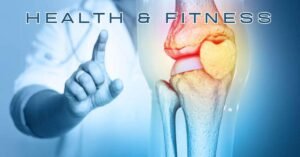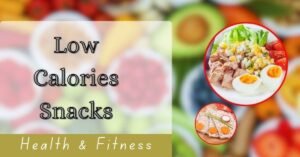Eat Protein to build muscles. No matter what your level of experience is, you visit the gym and lift weights. A macronutrient that is used in muscle building and repair, hence it is used greatly by athletes and bodybuilders. Well, how much is too much, or how much protein should you take in to increase your muscles? In this article, we will explain what exactly protein is and how important it is in the diets of those trying to build muscle, as well as portion sizes and foods to eat to get your proper Protein intake.
Why is Protein intake Important for Muscle Gain?
Muscle tissue consists of protein, and because of this, after a workout, the muscle fibers undergo repair and develop into stronger tissues. This process is known as muscle protein synthesis. Gym members are advised to take protein of high biological value so that they can adequately replenish their body muscles through muscle protein synthesis. The digestive systems of Gym members should be familiar with proteins of high biological value to adequately replenish the body’s muscles through muscle protein synthesis. Protein contains amino acids necessary for muscle healing and growth because muscles are composed of tissue. This means you cannot afford to miss any amount of protein as your muscles will be unable to rebuild, and it will gradually lead to muscle wastage.
Additionally, Protein intake helps with the following:
Supports Metabolism: It is even believed to take more energy to digest than carbs or fats, meaning your calorie expenditure will be higher in a day.
Enhances Recovery: Protein intake after a workout session is advantageous because it lessens muscle stiffness and helps them heal faster.
Preserves Lean Muscle Mass: When fat loss brings you to a calorie-deprivation state, protein contributes to protecting muscle tissue from getting damaged.
How Much Protein Intake Do You Need for Muscle Gain?
Protein intake required can vary depending on factors like age, sex, level of physical activity, and other goals. But the average weight that can be used to measure protein intake to gain muscle mass is 1.6 – 2.2 g per kg of body weight per day. For instance, if you are 70 kg (154 pounds), you should consume between 112 and 154 grams of protein per day.
Here’s a more detailed breakdown of protein needs for different individuals:
Beginners: First-time resistance trainers should go for a protein intake of as little as 1.6g per kg of their body weight.
Intermediate or Advanced Lifters: Beginning lifters may be satisfied with the lower end of the range, whereas persons more experienced with weight training may more likely require the higher end, or 2.0 to 2.2 grams of protein per kilogram of body weight daily.
Older Adults: Protein utilization for muscle breakdown in the body also slows down the earlier age we reach as we grow older. Older adults may need greater Protein intake than younger adults since their muscles reduce as age progresses.
Best Sources of Protein
However, some proteins are better than others. Two, some proteins are more soluble than others and therefore easier for the body to assimilate; some contain an array of Essential Amino Acids that are vital in muscle development. Here are some of the best protein-rich foods to include in your diet for muscle gain:
Chicken Breast: Often included in muscle-building diets, chicken breast is quite lean and contains about thirty grams of protein per hundred grams of body weight.
Eggs: Being rich in first-class protein, eggs are described as one of the most complete food products with a balance of high biological availability. One large egg averages 6 g of protein and is rich in high-quality amino acids.
Fish (Salmon, Tuna, etc): Salmon falls under the category of fatty fish and contains protein and healthy fats such as omega-3 fatty acids that are needed for muscle recovery.
Greek Yogurt: This food item contains a lot of protein; about 10grams per 100 grams of Greek yogurt. It also contains a good amount of probiotics, which improves the health of the gut.
Lean Beef: Beef is the best source of protein and contains iron, zinc, and vitamin B12, all of which are vital in building muscles and the overall body.
Lentils and Chickpeas: For vegetarians or those health-conscious individuals seeking plant protein foods, lentils and chickpeas are recommended as they contain approximately 9 grams of protein per half a cup serving.
Whey Protein: If you find it difficult to consume enough protein through natural ingredients, whey protein powder is an easily digestible product.
Timing of Protein Intake
While the overall amount of Protein intake within a day plays the core role, the periods when you take your proteins also have their importance. Data in support of the effect of protein partitioning across the day emphasize that equal distribution of protein consumption builds muscle protein synthesis. A great way of doing this is to ensure that protein is incorporated in each meal and snack, and the portions are 20-40 grams.
Moreover, the body requires protein after exercising, so the amounts shown above should be consumed after exercise. Muscles are ready to be rebuilt after a workout session, and consuming protein immediately after you burst into a spirited session of intensive workout can help repair injured tissues and build more muscles. According to most nutritionists, consuming approximately 20-30 grams of protein is suggested within the post-workout period.
Combining Protein with a Balanced Diet
Even though protein is critical in muscle building, it has to be understood that muscles are built with food. It can be had along with enough amounts of carbohydrates and fat to power your workouts and also for recovery periods. Carbs are useful in replenishing the glycogen in muscle tissues that you need to deliver optimum performance during training.
Do not leave out the need for ‘good’ fats in your diet as well. Effective muscles require fats for hormonal production, especially testosterone. One should incorporate sources such as avocados, nuts, seeds, and olive oil into a diet plan for the best results.
Conclusion
There are, however, two common fallacies when it comes to muscle building: the first of which is excessive protein consumption, the second of which is acquiring it from the right source. Try to consume all protein in small portions several times during the day by using high-quality animal and/or plant sources. This way, you will foster muscle repair, growth, and strength, hence enabling you to reach your fitness objectives faster.
Remember, consistency is key. Add to water exercise and a proper nutrition plan more proteins, and you will reach the goal— see the muscles you have been sweating for.






